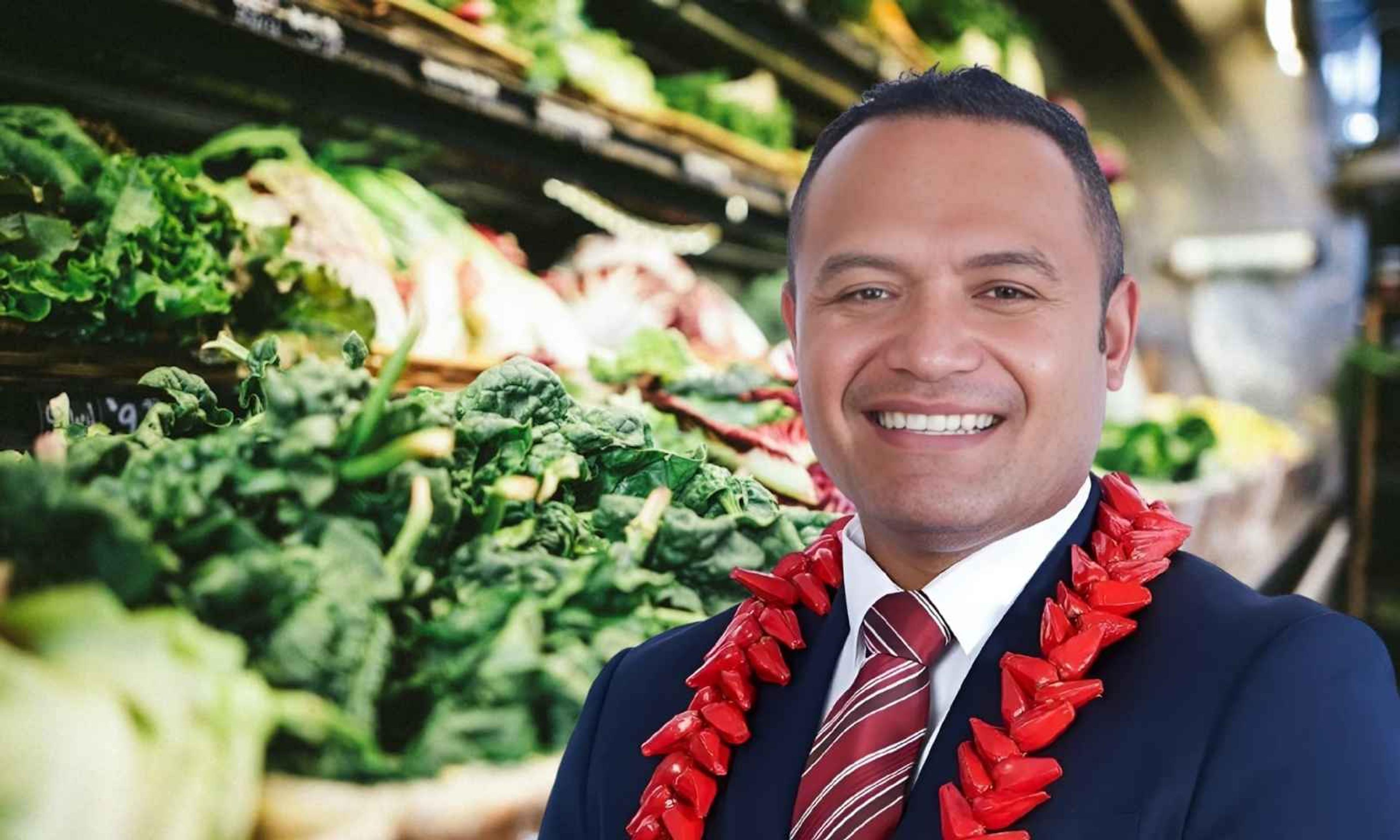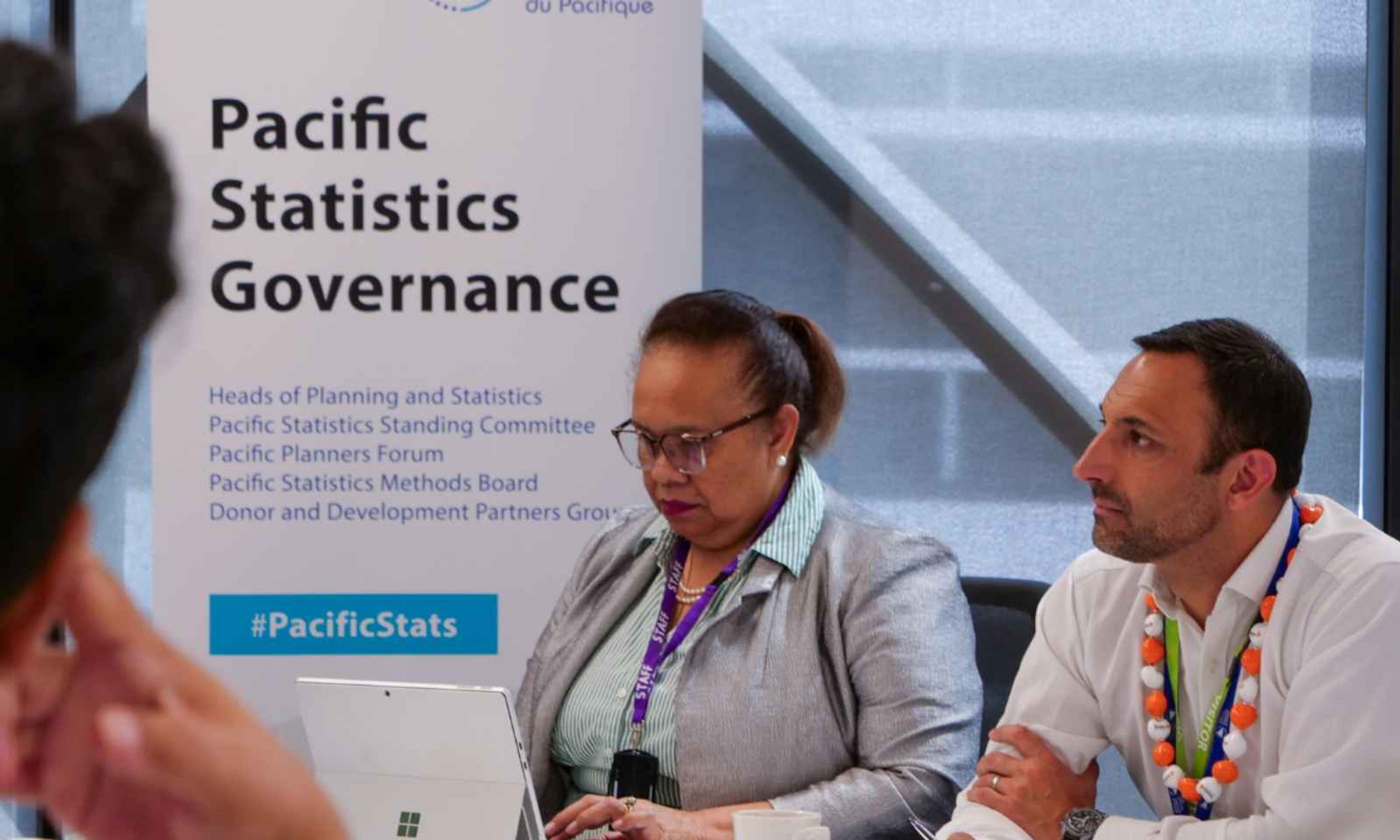

Dr Anae Neru Leavasa.
Photo/Unsplash/Facebook
Pacific health expert calls for bold action as supermarket reforms fail to fight food crisis
Dr Anae Neru Leavasa says the government’s aim to speed up consents will not ease grocery prices, leaving Pacific families under pressure.


‘The region needs to care about statistics’: Expert on tackling inequality through data


Fijian man charged after violent stabbing in Sydney’s inner city

Pacific and Māori youth bearing the cost of NZ’s ongoing vaping crisis

‘The region needs to care about statistics’: Expert on tackling inequality through data


Fijian man charged after violent stabbing in Sydney’s inner city
A Pacific health expert says the Government’s recent supermarket reforms aimed at fast-tracking consents and strengthening competition laws are merely “tiny steps” that will not provide immediate relief for rising grocery prices, leaving Pacific families under intense pressure.
Economic Growth Minister Nicola Willis announced a package last week designed to boost competition in the grocery sector. This package includes measures to reduce consent times for new supermarkets from around 18 months to under a year, creating a single authority for approvals, removing barriers to using MultiProof standardised designs, and amending the Commerce Act to address predatory pricing.
Willis has also not ruled out breaking up the supermarket duopoly held by Foodstuffs and Woolworths, which together control over 80 per cent of the country’s grocery market.
While GP and former Labour MP for Takanini, Dr Anae Neru Leavasa, says steps towards breaking the duopoly and inviting “new players” into the market are positive. But he argues that the reforms do not go far enough, especially for Pacific families struggling with food costs.
“The recent announcements are just tiny steps towards that end goal. There needs to be bigger legislation to do what we want in order to reduce food prices because at the moment, our Pacific families are facing the cost of living crisis right now,” Anae says.
“We can't wait for a few years for that to happen. So bigger announcements need to be done, that would be my thing to help improve the quality of life for our Pacific people.”
Listen to Dr Anae Neru Leavasa’s full interview below.
Anae’s criticisms mirror those of Sue Chetwin from the Grocery Action Group, who describes the new measures as simple “tinkering” that will not drive down prices. She says that forcing a divestment of supermarket assets is key.
Anae also links high grocery prices with negative health outcomes, saying that two-thirds of Pacific adults are obese and, therefore, prone to diseases like diabetes. He says Pacific people are three times more likely to have diabetes and 1.2 times more likely to suffer from cardiovascular disease.
“All those statistics don't help when we have food prices through the roof. That leads us to having poor nutrition, meaning we go for the lower in cost items that are high in calories, high in fat and in carbs.
“Everything is related to what's happening in our environment, whether it be the food environment, social environment, and that has an impact eventually on our health.”

Sue Chetwin, founder of the Grocery Action Group, says breaking New Zealand’s supermarket duopoly with a third player, although difficult, is needed. Photo/Unsplash/Facebook
Recent survey data underlines the scale of the problem. The 2023/24 New Zealand Health Survey shows that over half of Pacific children lived in households where food ran out often or sometimes in the past year, compared with 27 per cent of all children.
The survey also revealed that more than half of Pacific children lived in homes where they had to eat less because of a lack of money. Anae says food price inflation has worsened the problem.
Stats NZ reported that food prices rose by 5.0 per cent in the year ending July 2025, driven by sharp increases in dairy prices. Figures show the average price of two litres of milk climbed 16.0 per cent to $4.70, while butter prices rose 42.2 per cent to $8.59 for 500 grams.
Meanwhile, cheese prices jumped by 29.5 per cent to $13.01 for a one-kilogram block. Meat, poultry, and fish prices also rose 7.9 per cent, while fruits and vegetables were up 7.3 per cent.

Stats NZ reported that food prices rose by 5.0 per cent in the year to July 2025, driven by sharp increases in dairy. Photo/Unsplash
Anae says looking into the relationship between retail and wholesale can help. He says grocery providers being able to purchase goods at a "good level" that meets their margins means reduction in food prices. "Anything to help the restructuring of things in the grocery sector would definitely help at the checkouts for our people."
He sees greater investment in food education as a positive step for improving Pacific health statistics. Anae says that although healthcare is important, education about nutrition is crucial. Organisations like Heart Group or Heart Foundation play a vital role in this area.
“I want policymakers to be bold in the policies that they make. When it comes to legislation, be bold as well. We need transformative change. The crisis is here and now. We need those bold steps towards sorting out the different sectors around health care, food care and so forth.
“Because food policy is health policy, I really want to advocate for that. For our people out there, we’re resilient and resourceful. Our people can make the dollar stretch and keep living a healthier life. But it first starts with food and then exercise is second.”